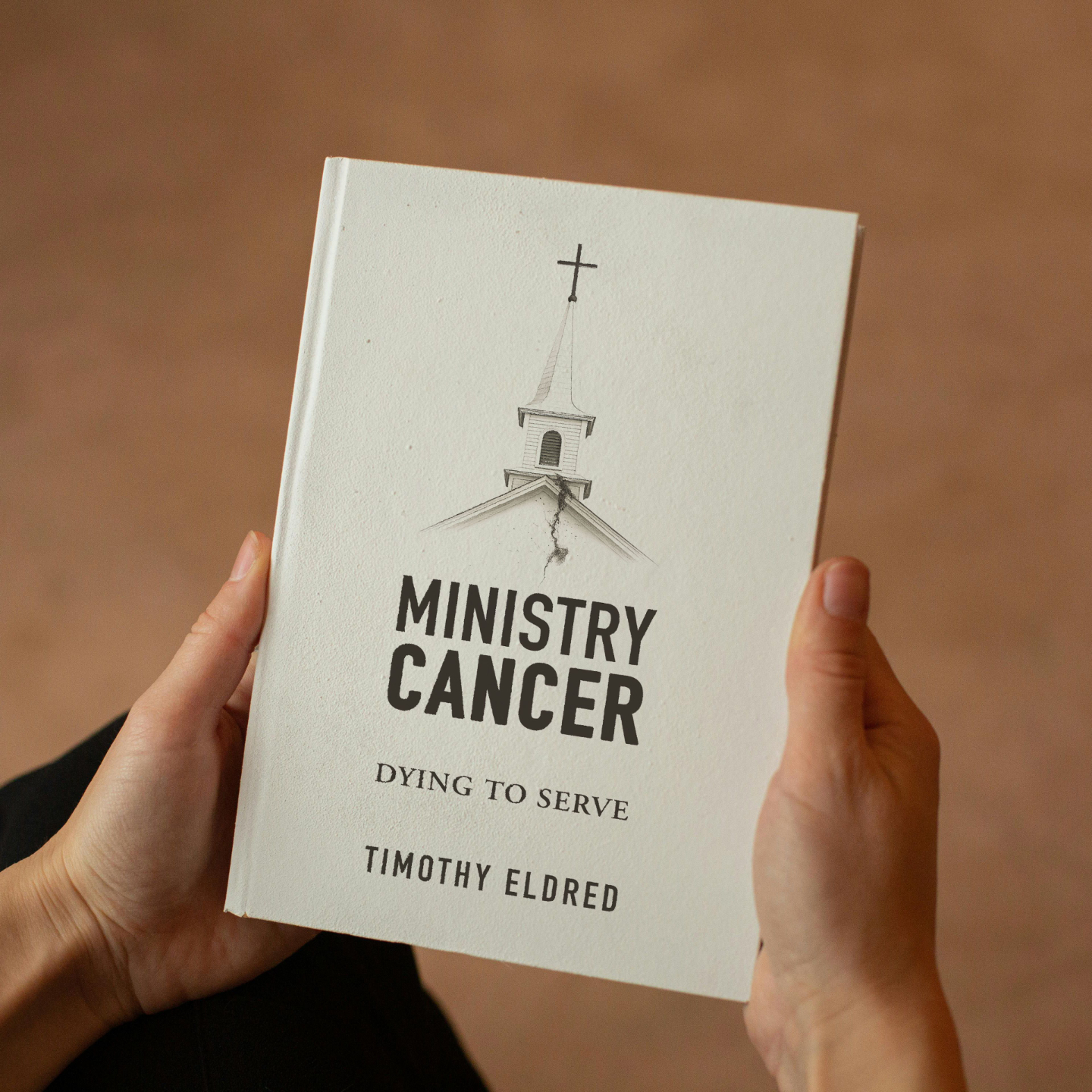The Balancing Act of Marriage in Ministry

Last Saturday, Cindy and I were sitting enjoying a quiet morning coffee and discussing my travel schedule. As I unpacked my calendar, she got a look on her face. You know the one—a mix of love, concern, and a touch of frustration. She took a deep breath and said, “I’m worried, not about you, but about us. Your schedule is filling up again, and I don’t want to go back to feeling like I’m doing life alone while you’re out there ‘saving the world.’” As much as I wanted to push back, I knew what she was saying from my years of spending 150 days a year in an airplane. Was I drifting back to those days? I assured her I wasn't.
But her words hit me like a ton of bricks. She wasn’t just expressing frustration; she was voicing a legitimate concern. Cindy knows the demands of ministry all too well. She also understands something even more critical—the toll it can take on a marriage. So based on that conversation and the discussions I have with many of the pastors I coach, I thought it was time to address this topic today.
As pastors, we pour ourselves into our profession, tirelessly serving our congregations and bending over backward to meet needs as they arise. It’s not just a job—it’s a lifestyle. And it’s one that we believe in passionately. But here’s the reality—sometimes, the very people closest to us, the ones we love most, end up with our leftovers. In our fervor to do God’s work, we can unintentionally leave our families to fend for themselves feeling sidelined or even forgotten. Let's dive into this challenge, examine why it happens, and explore practical steps to prioritize your spouse while staying committed to the ministry.
The Expectations We Face (and Place on Ourselves)
The pressure on pastors today is immense. Not only are we responsible for guiding and nurturing our congregations, but there’s also the unspoken (and sometimes spoken) expectation to be available 24/7. This pressure, when unaddressed, can slowly seep into every area of life—especially our marriages. Research has shown that pastoral roles come with high stress and high rates of burnout. A study by Fuller Institute found that 80% of pastors believe ministry negatively affects their families, and 77% feel they don’t have a close friend or confidant. These statistics reflect the isolation and stress that ministry can bring.
The expectations are heavy. But we also place expectations on ourselves. We tell ourselves that it’s okay to sacrifice a weekend or a family dinner for the greater good—we’re doing God’s work, after all. And in doing so, we convince ourselves that our family will understand—they’ll forgive us yet again for missing another family moment. But the truth is every missed dinner, every event we’re absent for, chips away at the bond we share with our spouse.
Pinpoint the Pain Points: Drifting Apart Together
The unique challenges of ministry life often create specific pain points in marriages. If left unchecked, these issues can grow into significant obstacles to a healthy, thriving relationship. Here are a few key pain points that many in ministry face:
1. Time Imbalance
Ministry schedules don’t follow a traditional 9-to-5 format. The constant pull of evening meetings, weekend events, and last-minute counseling sessions makes it hard to establish a balanced schedule. When our time is constantly divided, our spouses can start to feel like they’re the “second shift”—only getting our attention once we’re worn out and tired.
2. Emotional Depletion
Pastoral care requires empathy, patience, and emotional resilience. The problem? After pouring out emotionally for our congregation, we often have very little left to give to our spouse. They get the depleted version of us—the tired, emotionally exhausted one who needs to recharge rather than engage.
3. Resentment from Unrealistic Expectations
Over time, even the most understanding spouse can feel the weight of loneliness which leads to resentment. Cindy’s words to me that day reminded me that she also has a deep calling—a calling to be my partner in life—not just my co-worker in ministry. When the demands of the role overshadow our relationship, feelings of neglect can foster resentment and erode the foundation of our marriage.
4. The Pressure to ‘Save the World’
Ministry is a noble calling, and many of us feel the weight of responsibility to make a difference and be the hands and feet of Jesus. But sometimes, we take on more than we should—often at the expense of our families. Our spouses may feel as if we’re married to the church instead of to them, which can be an incredibly isolating experience.
Strategies to Prioritize Your Spouse and Marriage
While the challenges are real, so are the solutions. It requires intentionality and discipline. But it is possible to pursue ministry without sacrificing your marriage. Here are several practical steps to help keep your marriage strong while answering the call to ministry:
1. Create and Honor a Shared Schedule
Sit down with your spouse and create a weekly or monthly schedule that includes set times for quality time together. Plan these first. Cindy and I try to orchestrate our schedules and work to protect our weekends as much as possible. When you treat time with your spouse as non-negotiable, it sends a clear message that they are a priority.
2. Set Boundaries with Your Congregation
Ministry is demanding. So it’s essential to set healthy boundaries. Explain to your congregation that there are times you won’t be available—not because you don’t care—but because you value your family. Let them know that these boundaries help you serve them better in the long run. Communicating these boundaries openly helps set realistic expectations and prevents burnout.
3. Practice Emotional Check-Ins
Emotional health is critical for any relationship, especially marriage. Make it a habit to regularly check in with your spouse about their emotional needs and yours. Share what’s on your mind, your concerns, and your stressors. Ministry often requires you to be the strong one, but with your spouse, you should feel free to be vulnerable and open.
4. Quality Time Not Just Quantity Time
Sometimes, it’s not about the amount of time spent together but the quality of that time. When you’re with your spouse, be fully present. Put away the phone, stop thinking about that next sermon, and focus entirely on being with them. This intentional quality time can help strengthen your bond even if your time together is limited.
5. Embrace a Sabbath Mentality
We preach about the importance of Sabbath—but we must practice it ourselves—both for our spiritual health and our relationships. Designate a day (or half-day) each week to fully rest and recharge and get away from ministry duties. Use this time to invest in your marriage, reconnect with your spouse, and be fully present.
6. Seek Accountability and Counseling
Sometimes, we can’t navigate this journey alone. Consider finding an accountability partner or a counselor who understands the unique challenges of ministry life. Talking to someone outside of your marriage about the struggles you face can offer fresh perspectives and solutions. Counseling isn’t a sign of weakness; it’s a commitment to your growth as a person, spouse, and pastor.
7. Regularly Revisit Your “Why” as a Couple
Just as you have a mission statement for your ministry, create one for your marriage. (I can't emphasize this enough. It's the cornerstone of our coaching at The Authentic Pastor.) What do you both value most in your relationship? What are your shared goals and dreams? Revisit this “why” regularly to keep your marriage mission-focused and aligned with God’s purpose for both of you.
Embracing the Calling: Ministry as a Partnership
One of the most powerful ways to strengthen your marriage while in ministry is to view your relationship as a team effort. While one spouse may be the pastor, both partners are essential to the mission. Involve your spouse in the vision of the ministry—seek their input and value their support. Let them know that they are your partner in this calling—not just someone you turn to after the workday is over.
Marriage and ministry are not mutually exclusive. They can be harmonized—but it requires intention, empathy, and grace. It requires us to pause, to listen, and to prioritize the relationship that God has entrusted to us first and foremost. Yes, we are called to serve. But we are also called to love our spouses as Christ loved the church, sacrificially and wholeheartedly.
Final Thoughts: A Ministry That Starts at Home
Cindy’s words were more than a reminder. they were a wake-up call—one I needed to hear. If we want our ministries to be effective and to reflect God’s love, they must start at home. A healthy marriage is the foundation of a healthy ministry. When our spouses feel loved, valued, and prioritized, they become our greatest allies and supporters in our calling.
This isn’t a one-and-done decision. It’s a daily choice to love, honor, and cherish the person God has given us to walk through life with. So if you’re in ministry, I encourage you to take a step back and assess your priorities. Make sure your spouse isn’t just getting the leftovers. Because in the end, it’s not just about saving the world—it’s about walking faithfully with the one who’s by your side through it all. ◼︎
Download Our FREE Marriage Assessment Tool
If you're ready for something new and need help, our team of veteran pastors can help you take control of your life and ministry. Schedule a free 30-minute discovery call to find out how.
If you found this article helpful and want them in your inbox, sign up here.
We’ll send you each article plus updates from The Authentic Pastor that cut through the noise. No spam, just the good stuff—you can unsubscribe anytime.

